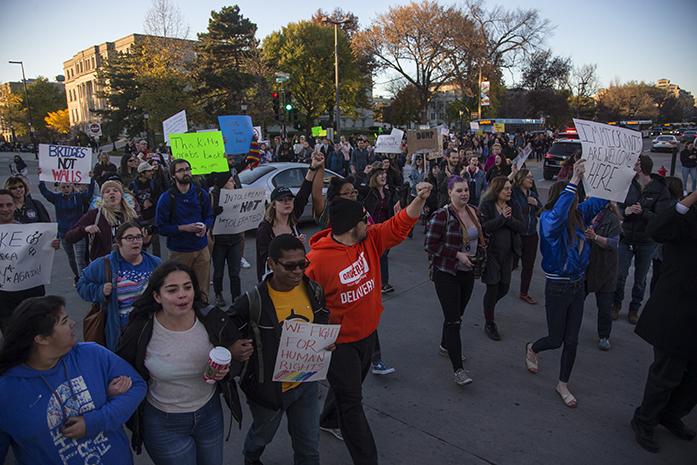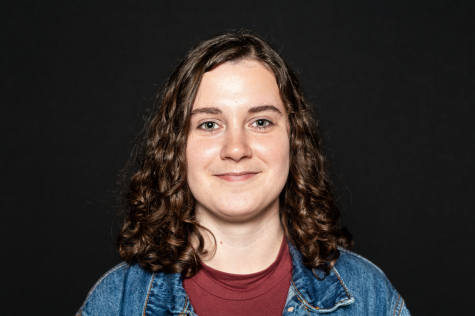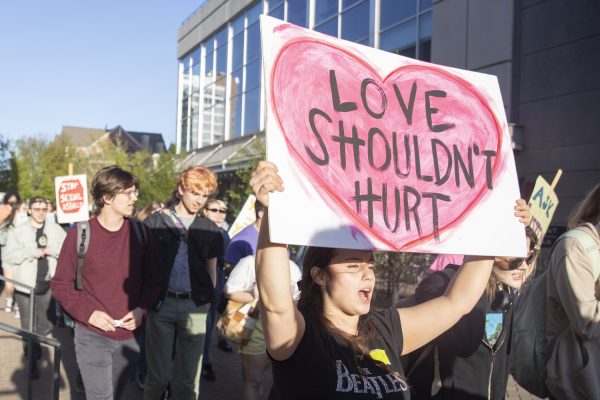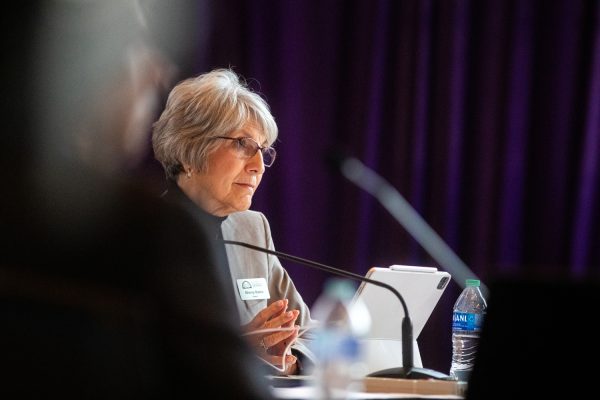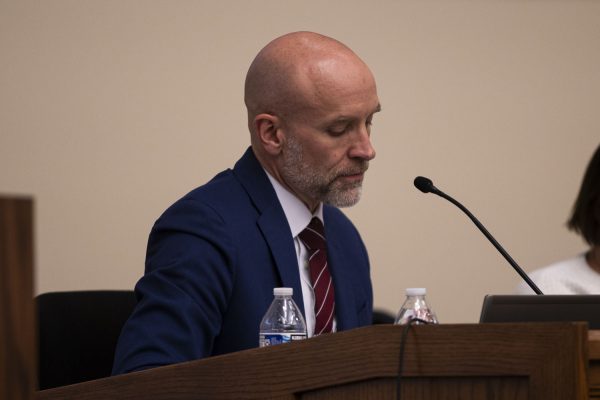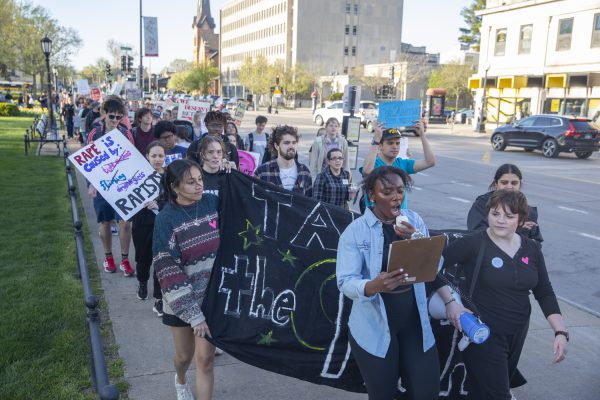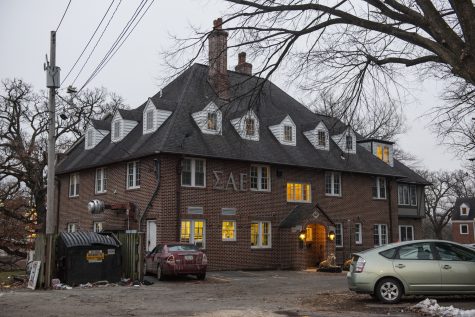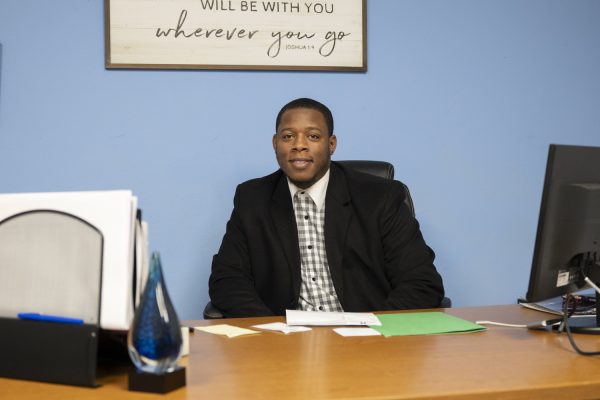Not My America takes to the streets
Protesters demonstrate in the intersection of Clinton and Washington Street while disrupting traffic on Friday, Nov. 11, 2016. Community members carried signs and participated in chants against President-elect Donald Trump. (The Daily Iowan/Joseph Cress)
November 14, 2016
Protesters gathered on the Pentacrest on Nov. 11 to speak against the values that President-elect Donald Trump has espoused throughout his campaign, eventually taking their chants to the streets and ultimately shutting down Interstate 80.
This “Not My America” protest organized by University of Iowa graduate student Caroline Cheung was part of a national movement spreading from Rochester, New York.
As the #NotMyPresident hashtag started trending on social media, Cheung and the organizers in New York felt the name of the protest should acknowledge that the problems of racism, xenophobia, homophobia, and other forms of hatred run deeper than the election cycle.
“We knew first of all we wanted to sort of parallel Trump’s slogan of ‘Make America Great Again,’” she said. “We also just felt like the problems and the values that are harmful that are associated with Trump go beyond him and beyond the presidency. Its values that have been perpetuated throughout many people in this country.”
With one of the most common chants at the protest being “He’s racist. He’s sexist. He doesn’t represent us,” it would appear the people who assembled that evening agree with the sentiments Cheung expressed.
UI freshman Kennisha Entsminger said she was concerned about Trump’s rhetoric normalizing prejudice and discrimination. On Nov. 9, the day after the election, a racist remark was discovered in Burge Hall, where Entsminger resides.
“What we need to do is besides spreading love and acceptance, we need to spread awareness,” she said, receiving a large round of applause and cheers from the protesters. “It is not acceptable to write racist remarks on people’s doors. It is not OK to call people racist remarks … Spread awareness. Spread the love. Keep loving, guys.”
In addition to spreading awareness among peers, Cheung wanted to offer protesters the option of sending letters directly to elected officials, which, she said, was in hopes of getting more tangible results.
“We also need to get our voices heard to elected officials … who do sign off on what does get passed and what does get changed,” she said. “I do think public opinion a lot of times does drive what policies are made, so that’s why education, and speaking, and discussion, and conversation outside of politics are definitely very important.”
While she stressed the importance of addressing lawmakers directly, Cheung did not diminish the significance of coming together in solidarity with others to protest. She said those who have spoken out against protesters to accuse them of merely “complaining” are undermining efforts to promote equality and safety for all Americans.
“Whether they’re intentionally doing it or not, it’s very derailing and very silencing,” she said. “They just want you to be silent when you are scared … They’re not making the effort to understand why people are so upset and why this is actually a big deal.”
Ben Craighton, a community organizer from Simpson College in Indianola who came to protest in Iowa City, said people are out in the country protesting out of necessity and to fight for an America that is theirs.
“This is why we protest: to amplify the voice of the downtrodden and the disenfranchised; to ensure that all Americans will know that they are loved and will be protected by the laws of this free country,” he said. “President-elect Trump does not realize that he has energized a progressive movement that will cast shadows on the movements of the 1930s and 1960s.”



